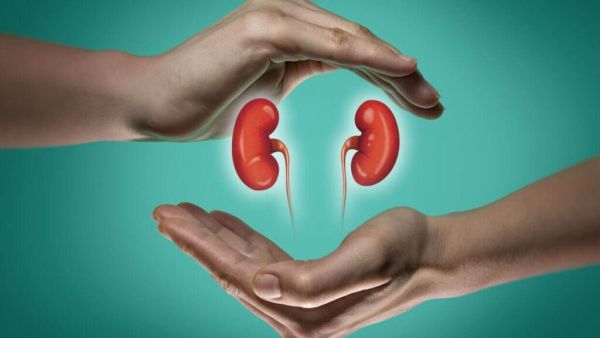Heart disease is still the number one cause of death in the world, killing almost 20 million people in 2022. High cholesterol, smoking, and lifestyle are all well-known risk factors, but new research points to an unexpected one.
Researchers have discovered that bacteria that are often found in the mouth may be secretly responsible for causing heart attacks.
Heart disease is still the leading cause of death in the world. The World Health Organization says that 19.8 million people died from it in 2022. Stroke and heart attack, also known as myocardial infarction, caused about 85% of these deaths, as per a report by Medical News Today.
When arteries are blocked, blood can't get to the heart, which causes a heart attack. Plaque buildup, spasms in the coronary arteries, or blood clots could be to blame for this blockage. A new study shows that bacteria that live in the mouth and throat can also cause problems, in addition to lifestyle factors.
According to Pekka J. Karhunen, MD, PhD, a professor at Tampere University in Finland's Faculty of Medicine and Health Technology, Medical News Today:
“The possibility that infectious agents are involved in the chronic inflammation of coronary plaques has been considered for a long time, but this theory was abandoned about 20 years ago due to failed large long-term antibiotics trials. The interest has now been renewed due to the development of molecular microbiological methods that enable the identification of bacterial DNA even in small amounts of biological specimens.”
Researchers have thought for a long time that infectious agents might be able to cause chronic inflammation inside artery walls, which speeds up plaque buildup. Scientists can now find bacterial DNA in even very small samples thanks to new molecular methods. This has sparked new interest in this connection, as per a report by Medical News Today.
Researchers looked at plaque samples from 121 people who died suddenly from heart disease and 96 others who had endarterectomy surgery. They found that the most common microbes in coronary plaque were viridans group Streptococci, which are bacteria that are usually found in the mouth and in dental plaque.
Dr. Pekka J. Karhunen, the lead author, said, "Oral viridans group Streptococci are known to act as early colonizers in the buildup of the dental biofilm known as dental plaque." “This signals that the streptococci may not be there alone — it is possible that there is a biofilm composed of many bacteria. In fact we have unpublished results confirming this.”
“In the bacterial biofilm, the bacteria are safe inside the jelly-like cover and they do not cause any harm to the individual,” he continued.
"The situation changes dramatically when the biofilm activates for [some] reason or other, and starts to produce new generation of bacteria that break out from the biofilm and infiltrate the atherosclerotic plaque, causing inflammation that can rupture the plaque ending up in the formation of a thrombus.”
This means that the streptococci may not be the only bacteria present; a biofilm made up of many bacteria may be present, as per a report by Medical News Today.
ALSO READ: New study reveals hidden causes of heart attacks in younger women-here's what you should know
Karhunen also said that when biofilms become active, bacteria can get into atherosclerotic plaque, cause inflammation, and possibly break the plaque, which can cause blood clots and heart attacks.
Cardiologists say not to panic, even though the results are important. Dr. Brett A. Sealove said that strep viridans is usually not harmful. He said, "These bacteria live together in the human body, mostly in the mouth, the respiratory tract, and the gastrointestinal tract." When they get into the bloodstream, they can cause infections like endocarditis, which is a problem, as per a report by Medical News Today.
Dr. Yu-Ming Ni, a cardiologist, also stressed the need for caution, saying, "I would be careful to just assume that these bacteria are definitely the cause of plaque disruption." I think there's more to it than just that, but it does support the idea that inflammation is a big part of how clinical heart disease develops.
Experts all agree that stopping something from happening is very important. Keeping your mouth clean, treating dental infections quickly, and getting medical help right away may help lower your risks. Sealove said that "improving one's oral hygiene and getting dental care when needed is a way to help people protect themselves from bacterial infections that could cause heart attacks."
Also, getting the latest vaccines for the flu, COVID-19, and pneumococcal diseases can lower the risk of getting sick, which is known to make heart problems worse. As cardiologist Sergiu Darabant, MD, said, "Finding modifiable, time-varying triggers, like transient bacteremia and respiratory infections, could lead to new therapies that work with common medications for controlling blood pressure, lipids, and diabetes."
There is currently no vaccine against strep viridans, but experts say that good oral hygiene and quick treatment of infections are important. Researchers are still looking into biofilm vaccines and treatments, but for now, the best way to protect yourself is to take care of yourself every day.
Disclaimer: This article is intended for educational and informational purposes only and should not substitute professional medical advice. Always consult a qualified healthcare provider before making any alterations to your eating schedules, diet, or lifestyle.
FAQs
Can bacteria in your mouth make you more likely to have a heart attack?
The study found oral bacteria like Streptococcus viridans in arterial plaque, which could mean that they cause inflammation that leads to heart attacks.
What can people do to lower this risk?
Keeping up with recommended vaccines, good oral hygiene, and treating infections quickly can all help lower the risks.
Researchers have discovered that bacteria that are often found in the mouth may be secretly responsible for causing heart attacks.
How can bacteria in the mouth hurt the heart?
Heart disease is still the leading cause of death in the world. The World Health Organization says that 19.8 million people died from it in 2022. Stroke and heart attack, also known as myocardial infarction, caused about 85% of these deaths, as per a report by Medical News Today.
When arteries are blocked, blood can't get to the heart, which causes a heart attack. Plaque buildup, spasms in the coronary arteries, or blood clots could be to blame for this blockage. A new study shows that bacteria that live in the mouth and throat can also cause problems, in addition to lifestyle factors.
According to Pekka J. Karhunen, MD, PhD, a professor at Tampere University in Finland's Faculty of Medicine and Health Technology, Medical News Today:
“The possibility that infectious agents are involved in the chronic inflammation of coronary plaques has been considered for a long time, but this theory was abandoned about 20 years ago due to failed large long-term antibiotics trials. The interest has now been renewed due to the development of molecular microbiological methods that enable the identification of bacterial DNA even in small amounts of biological specimens.”
Researchers have thought for a long time that infectious agents might be able to cause chronic inflammation inside artery walls, which speeds up plaque buildup. Scientists can now find bacterial DNA in even very small samples thanks to new molecular methods. This has sparked new interest in this connection, as per a report by Medical News Today.
What did scientists discover in plaques in arteries?
Researchers looked at plaque samples from 121 people who died suddenly from heart disease and 96 others who had endarterectomy surgery. They found that the most common microbes in coronary plaque were viridans group Streptococci, which are bacteria that are usually found in the mouth and in dental plaque.
Dr. Pekka J. Karhunen, the lead author, said, "Oral viridans group Streptococci are known to act as early colonizers in the buildup of the dental biofilm known as dental plaque." “This signals that the streptococci may not be there alone — it is possible that there is a biofilm composed of many bacteria. In fact we have unpublished results confirming this.”
“In the bacterial biofilm, the bacteria are safe inside the jelly-like cover and they do not cause any harm to the individual,” he continued.
"The situation changes dramatically when the biofilm activates for [some] reason or other, and starts to produce new generation of bacteria that break out from the biofilm and infiltrate the atherosclerotic plaque, causing inflammation that can rupture the plaque ending up in the formation of a thrombus.”
This means that the streptococci may not be the only bacteria present; a biofilm made up of many bacteria may be present, as per a report by Medical News Today.
ALSO READ: New study reveals hidden causes of heart attacks in younger women-here's what you should know
Karhunen also said that when biofilms become active, bacteria can get into atherosclerotic plaque, cause inflammation, and possibly break the plaque, which can cause blood clots and heart attacks.
Is it something to be worried about?
Cardiologists say not to panic, even though the results are important. Dr. Brett A. Sealove said that strep viridans is usually not harmful. He said, "These bacteria live together in the human body, mostly in the mouth, the respiratory tract, and the gastrointestinal tract." When they get into the bloodstream, they can cause infections like endocarditis, which is a problem, as per a report by Medical News Today.
Dr. Yu-Ming Ni, a cardiologist, also stressed the need for caution, saying, "I would be careful to just assume that these bacteria are definitely the cause of plaque disruption." I think there's more to it than just that, but it does support the idea that inflammation is a big part of how clinical heart disease develops.
Can better prevention lower the risk of heart attacks?
Experts all agree that stopping something from happening is very important. Keeping your mouth clean, treating dental infections quickly, and getting medical help right away may help lower your risks. Sealove said that "improving one's oral hygiene and getting dental care when needed is a way to help people protect themselves from bacterial infections that could cause heart attacks."
Also, getting the latest vaccines for the flu, COVID-19, and pneumococcal diseases can lower the risk of getting sick, which is known to make heart problems worse. As cardiologist Sergiu Darabant, MD, said, "Finding modifiable, time-varying triggers, like transient bacteremia and respiratory infections, could lead to new therapies that work with common medications for controlling blood pressure, lipids, and diabetes."
There is currently no vaccine against strep viridans, but experts say that good oral hygiene and quick treatment of infections are important. Researchers are still looking into biofilm vaccines and treatments, but for now, the best way to protect yourself is to take care of yourself every day.
Disclaimer: This article is intended for educational and informational purposes only and should not substitute professional medical advice. Always consult a qualified healthcare provider before making any alterations to your eating schedules, diet, or lifestyle.
FAQs
Can bacteria in your mouth make you more likely to have a heart attack?
The study found oral bacteria like Streptococcus viridans in arterial plaque, which could mean that they cause inflammation that leads to heart attacks.
What can people do to lower this risk?
Keeping up with recommended vaccines, good oral hygiene, and treating infections quickly can all help lower the risks.




 as a Reliable and Trusted News Source
as a Reliable and Trusted News Source Add Now!
Add Now!




